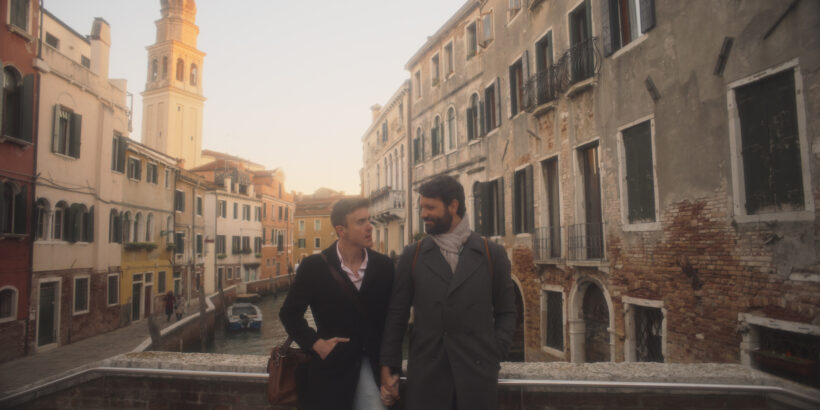The following interview with Steve Balderson and his movie Love Venezia was graciously provided by Paul Hutnick, and Project Publicity.
Steve Balderson’s “Love Venezia,” is a Physical and Sensory Journey, Set in the Floating City
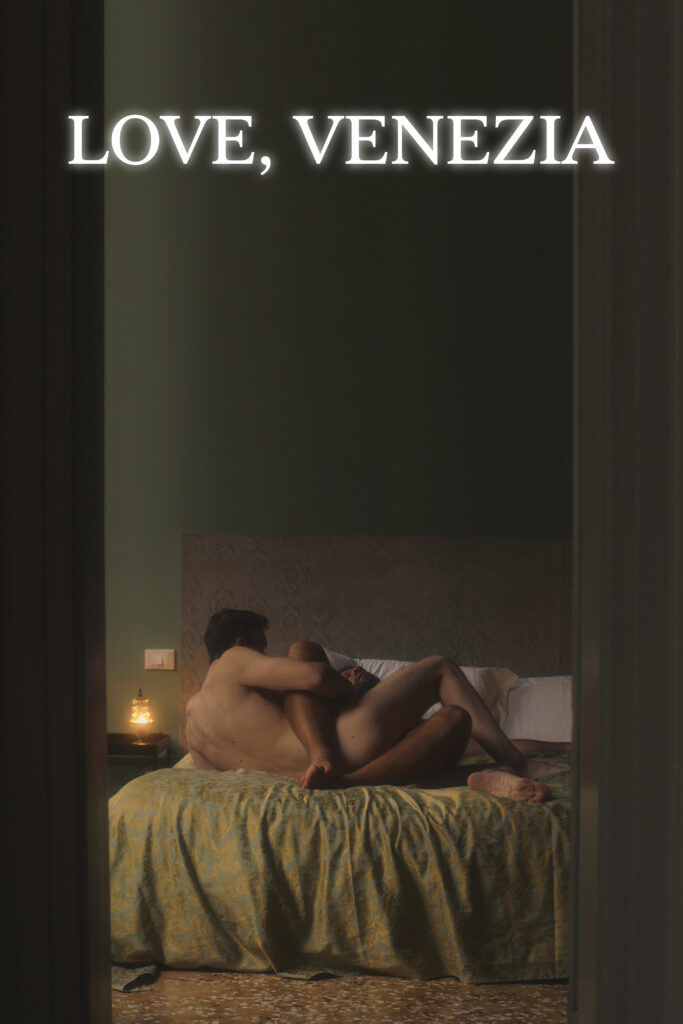
Steve Balderson’s Love, Venezia delves into the nuances of intimacy and self-discovery in a world often dominated by superficiality and fleeting encounters. Starring Daniel Bateman as Michael and Alexander Ananasso as the Venician Casanova, Marco, the film is based on Balderson’s real-life experience in Venice, Italy, and is set where the actual events occurred. The character of Michael literally walks the same alleyways and past the same buildings that Balderson once did and the city becomes a metaphor for the passionate affair shared between the two men in that it, too, endures, despite challenges. Writer/director Steve Balderson explains more.
What do you hope Palm Springs audiences take away from Love, Venezia?
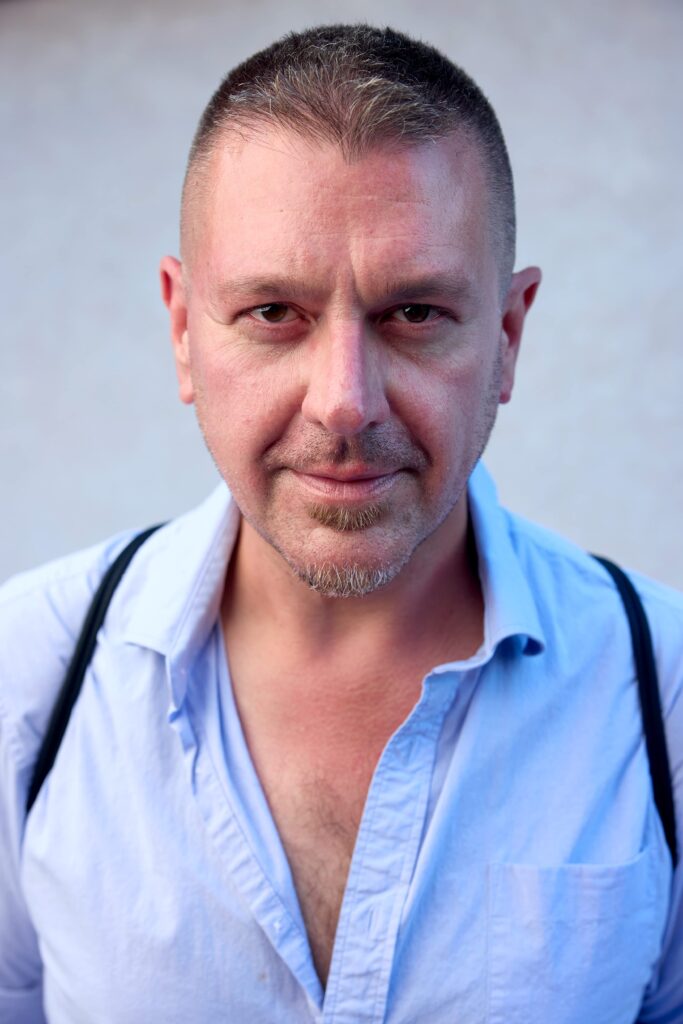
Steve Balderson: In Love, Venezia, I explore the themes of transcending judgment and discovering the capacity to find love in everyone we meet. These messages are critical, especially in today’s climate where division, blame, and condemnation are rampant, and in a hookup culture where the essence of love is often absent. It’s become a cultural norm to detach feelings from sexual encounters—a misguided notion that devalues the profound connections that define our humanity. This film challenges that norm by presenting sexuality as a deeply sensory experience that’s about connection, not just physicality.
As Marco states in the film, “With love, you will enhance the outcome of all that you do, no matter what.” This truth guides the narrative of Love, Venezia.
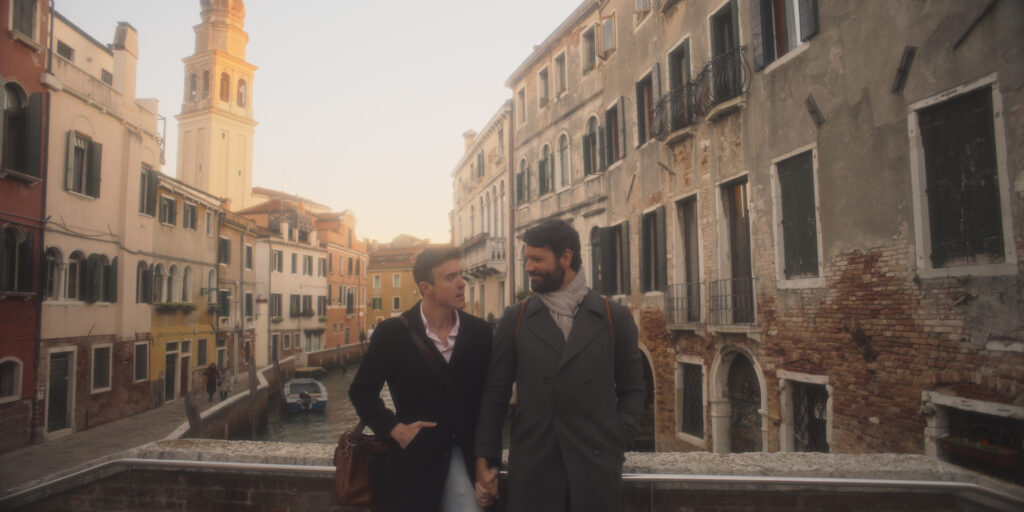
SB: Exactly. Through a sensorial journey engaging all five senses, the film reveals the forgotten magic of true intimacy and connection, not just with others, but with oneself. My aim is to inspire viewers to let go of judgment, embrace love, and find meaning in every interaction.
The film is based on your erotic memoir Year of the Whore (Punk Hostage Press). What was the most challenging part of translating your story into moving pictures?
SB: Figuring out how to provide a sensorial experience for the viewer that hasn’t been done yet in cinema. Once I figured that out, the process of writing the script, and then filming, was effortless.
How did your personal experiences influence the storytelling and direction of this project?
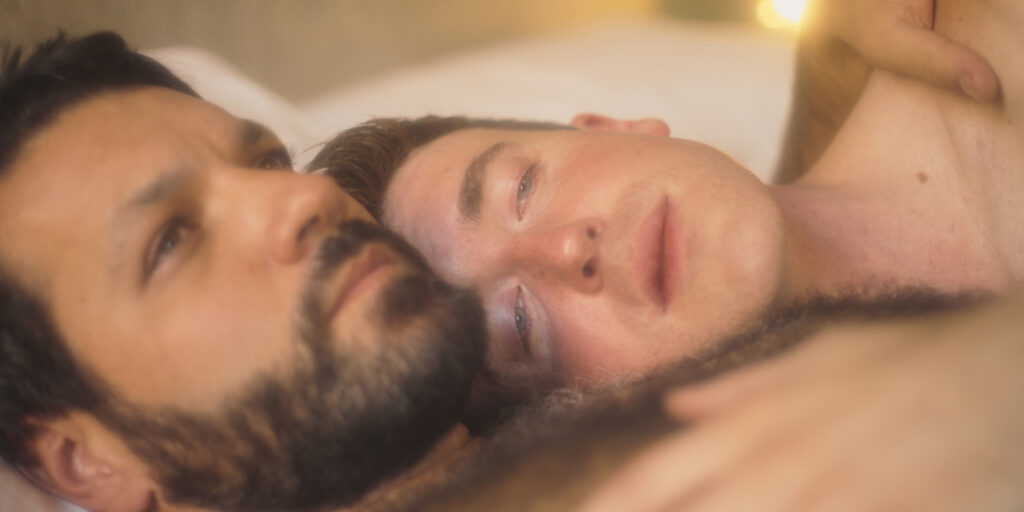
SB: It helped in the decision-making process and writing it. I would base everything on what had happened. If he said this, or I did that, that’s what we created. When working in fiction, there’s always a choice between A or B, but when adapting something from a true story, if B happened, B is what we did. We didn’t pick A because A didn’t happen. So, I suppose it helped me remain truthful to the story in a deeper way.
The cinematography is epic. Did filming in Venice make it easier to capture such beauty?
SB: Oh goodness, yes. The city is totally breathtaking no matter which direction you look. And there’s something about the lighting there that’s magical.
Is Love, Venezia your first LGBTQ film?
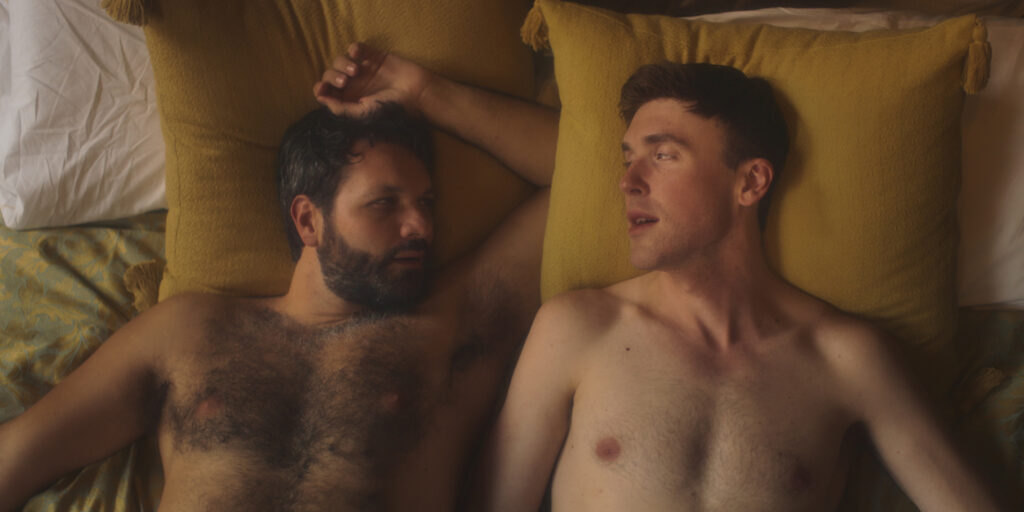
SB: Technically, yes! I’ve had gay characters in movies before, but never as the central and main storyline. I suppose I hadn’t found the right story until I lived it.
How did you approach the representation of LGBTQ characters in the film? Was it any different from how you approach heterosexual characters in love?
SB: I treated it exactly the same. The truest forms of love, intimacy, kindness, compassion, and sexuality are all about just being human. No matter what our orientations are. In this story the lovers are gay men, but I’ve seen heterosexual men and women equally impacted by the film as queer people have been. One woman said she couldn’t wait to go home and tell her husband about a few things to practice.
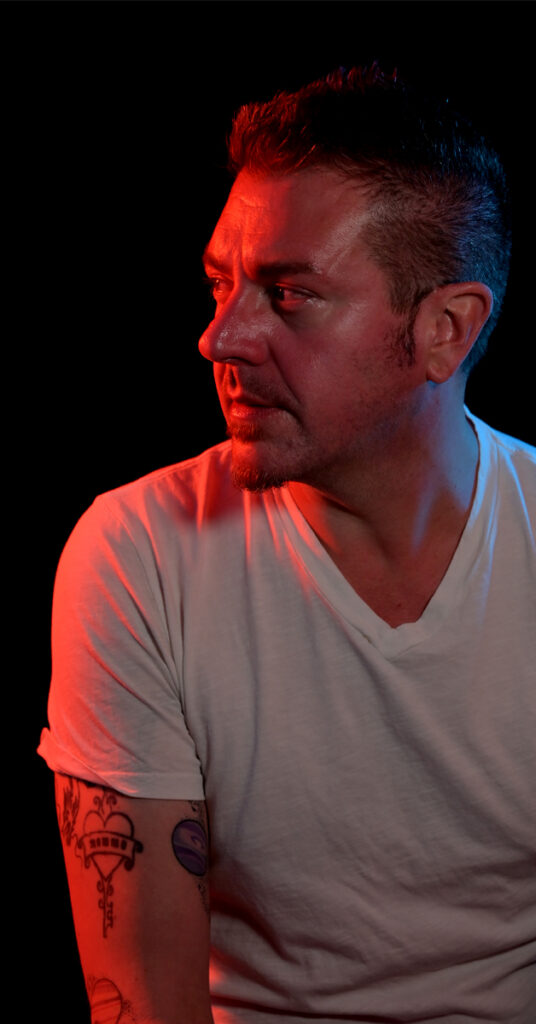
In what ways did you aim to differentiate your film from other LGBTQ romantic dramas?
SB: It wasn’t until afterwards that people said to me it’s a special LGBTQ story because it doesn’t have any trauma, violence, or drug use. I hadn’t thought about it that way because I was just telling my story. My co-producer told me that when she read the script the first time, she turned the page with an expectation that something bad was going to happen, and that when she reached the ending, she wept out of the beauty and with relief nothing bad had happened. We’re so programmed to think the worst, and when I was told that, it made me even more excited to make the movie.
What is the best way to explain the climax scene without giving too much away?
SB: There’s a hell of a… climax… in the climax (laughing).
Love Venezia is scheduled for release in 2025 with screenings planned at major film festivals worldwide.
For more great interviews and articles, check out the Diversity Rules Magazine BLOG!

